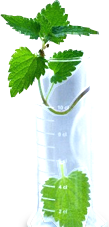



Author(s): Jayachandran V.P, Nirupama Chayani, Sreeja Nair, Gangaprasad A
P.aeruginosa one of the prominent bacteria associated with wound infections and the recent years have seen an increase in the prevalence of P.aeruginosa in wound cases. Multiple drug resistant P. aeruginosa (MDRPA) is defined as an isolate resistant or intermediate to at least three antipseudomonal drugs like cephalosporins, carbapenems, aminoglycosides, and fluoroquinolones. Medical community is in search of effective and novel drug against this pathogen. Recent years have witnessed the antimicrobial potential of plant sources. Hence prevalence of MDRPA among wound infections and exploration of plant extracts as antipseudomonal agents is a field confronting current research. P. aeruginosa isolates were obtained from wound infections and their resistance to eleven antibiotics were checked .69.6 % of isolates were found to be MDRPA. Imipenem was found to be the most effective antibiotic, followed by amikacin and gatifloxacin. Cold ethanolic and hot water extracts of nine medicinal plants were evaluated. The antibacterial efficacy of the extracts was checked by well diffusion. Microbroth tube dilution method was carried out to determine the minimum inhibitory concentration (MIC). The ethanolic and water extracts of the peel of P. granatum were found to be effective against MDRPA with MIC of 2 0 0 µ g / m l . The development of resistance against the present drug of choice imipenem, is of particular concern. Hence the extracts of P. granatum can be used for drug innovations as antipseudomonal agents